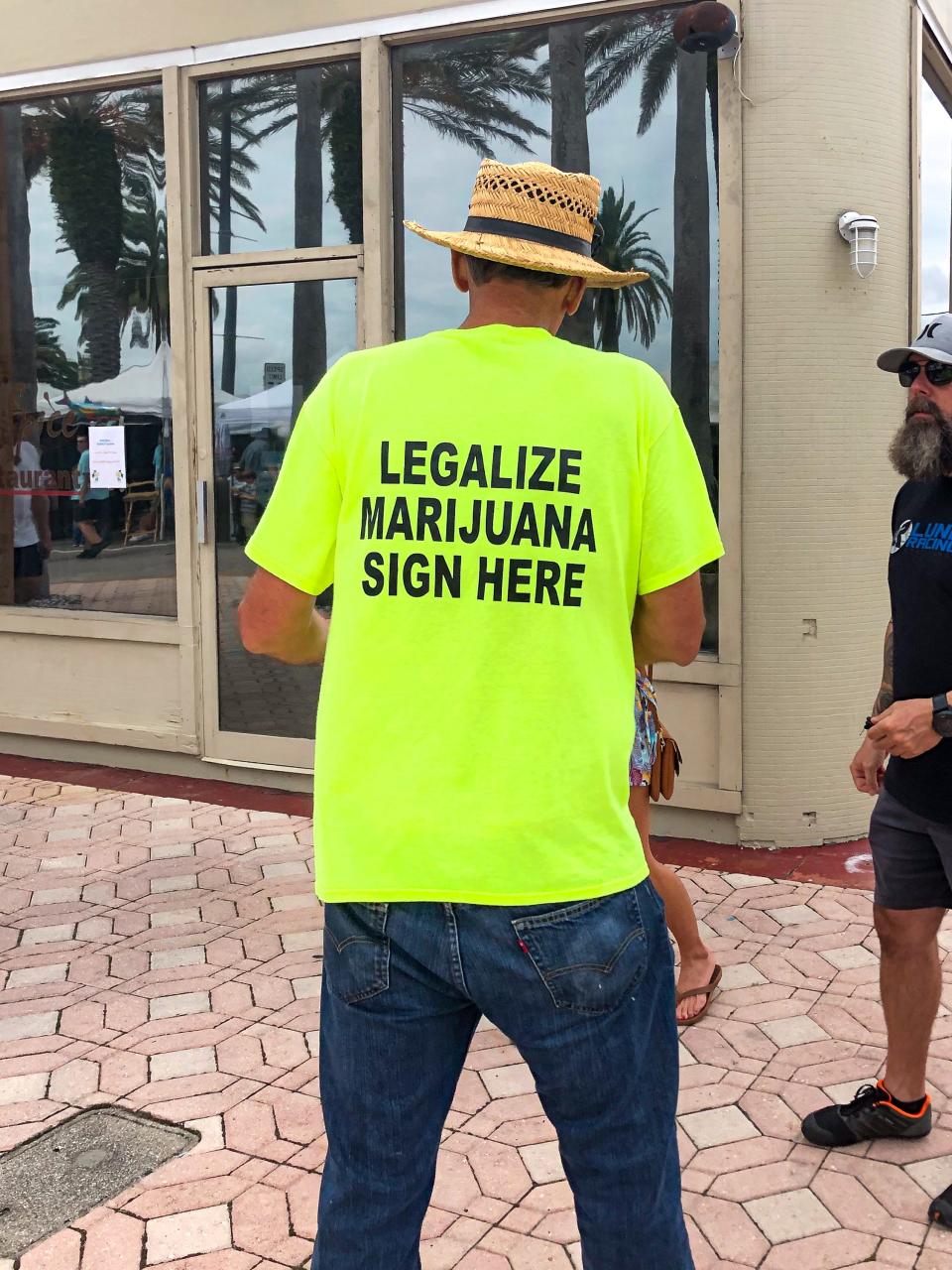Mark Lane: Legislature strikes back at amenders. Again.
I have lost count of the times the Florida Legislature sought to eliminate, hobble or reverse the state’s initiative process. And they are at it again. Your legislators hate, just hate, being told what to do.
A bill to make it even harder to pass constitutional revisions passed its first committee vote in the Florida House of Representatives last week.
Ballot amendments must currently pass by a supermajority to become law ― 60% must vote “yes.” But a bill (HJR 335), approved by the Ethics, Elections & Open Government Subcommittee, would require amendments to pass by a super-super majority ― 66.67% would need to note “yes.” This had been previously proposed in the 2023 and 2022 sessions but failed to make it out of committee.
If approved by the Legislature, the proposed state constitutional change would go on the November ballot.
I’ve long supported the referendum process as the only way a majority of voters can enact popular measures in the face of a recalcitrant legislature that won’t listen to the public. The initiative process has given us smaller class sizes, legalized medical marijuana, fairer redistricting, three-day waiting periods for handgun purchases, held out the possibility for people to regain their right to vote if they lost it due to a criminal conviction, blocked casino gambling, created Florida’s lottery, dedicated funds for land preservation, limited terms of office, established a state minimum wage and banned indoor smoking in workplaces.

More: On Roe's 51st anniversary, abortion amendment is pending Florida Supreme Court review
More: DeSantis predicts Florida will vote on recreational marijuana in 2024, site says
The Legislature would have done none of these things on its own despite strong public support.
Originally, an amendment only needed a simple majority vote to become law, but legislators put a new requirement on the ballot requiring a 60% supermajority in 2006. As it happened, that new requirement passed with only 58% of the vote.
And in 2020, a dark-money-funded group called Keep Our Constitution Clean spent $9 million on an amendment that would have required future amendments to be passed in two successive general elections to become law ― the Tell-Us-You-Really-Really-Meant-It Amendment. It failed to get a majority.
The Legislature makes it harder to get amendments on the ballot all the time. Recent rule changes have limited the size of campaign donations from outside the state to petition campaigns and banned paying petition-gatherers by the signature.
And it now takes 891,523 verified signatures to get on the ballot and a significant number of those signatures must come from voters in at least 14 of Florida’s 28 congressional districts. A high bar to clear.
One petition campaign that has overcome all those hurdles to go on November’s ballot would enact an abortion rights amendment. The Division of Elections has verified more than 910,946 signatures on that drive.
Another initiative would create an amendment to legalize recreational marijuana. It has gathered more than a million signatures.
Both face Florida Supreme Court rulings on whether they meet the minimum requirements to go before voters. State Attorney General Ashley Moody has filed briefs arguing that neither one should be allowed on the ballot.
Both of these amendments have a lot of popular support and a lot of opposition from Republican legislators. It’s no wonder then that legislators wish the whole initiative process would just go away, which is what the super-super majority proposal aims to do.
It’s a lot of work undercutting these things after they’re passed. Legislators are tired of doing that.
Still, the proposed change would have an uphill fight if it ended up on the ballot. Florida voters are not crying out, “stop us before we amend again!” Instead, a lot of them are signing new petitions.
Mark Lane is a News-Journal columnist. His email is mlanewrites@gmail.com.

This article originally appeared on The Daytona Beach News-Journal: Mark Lane: Legislature strikes back at amenders. Again.

